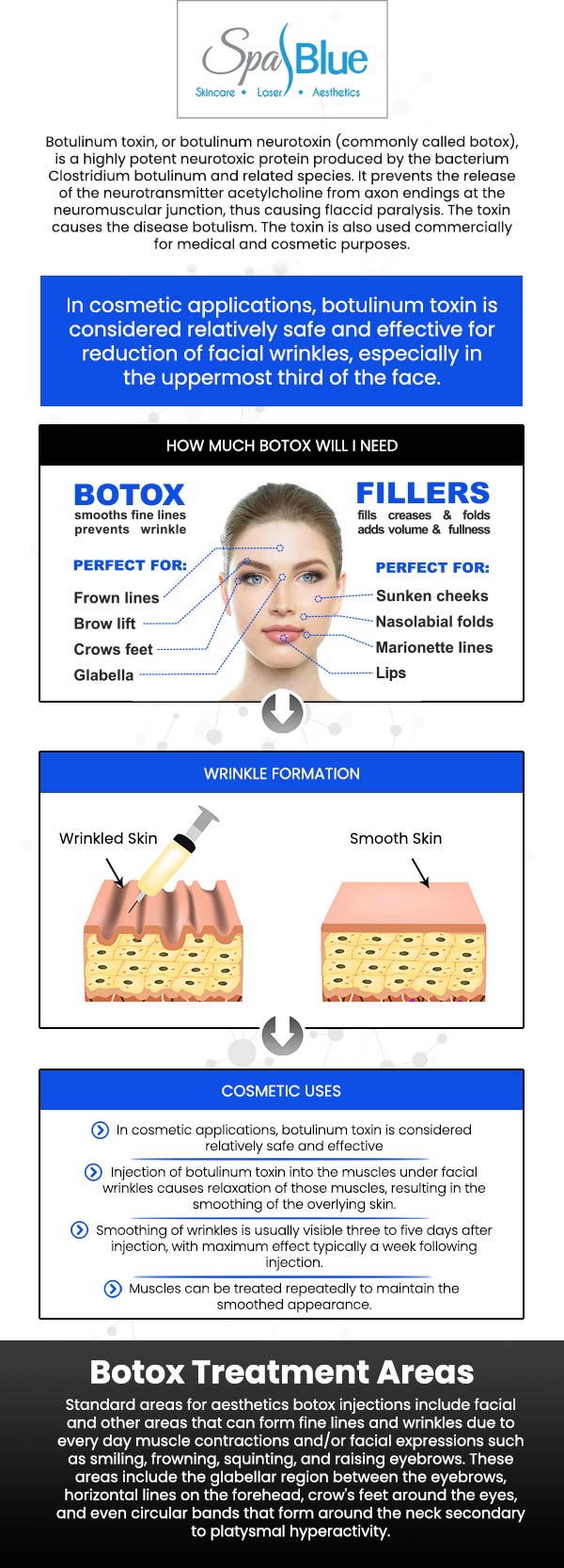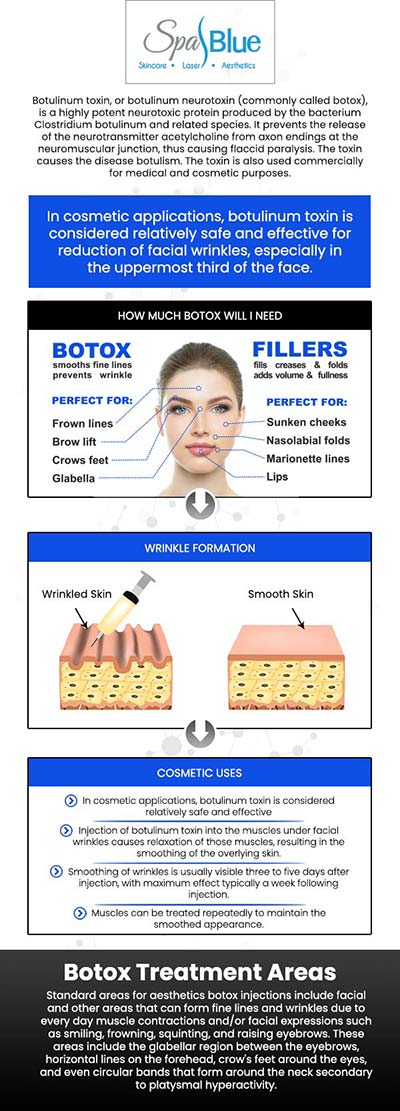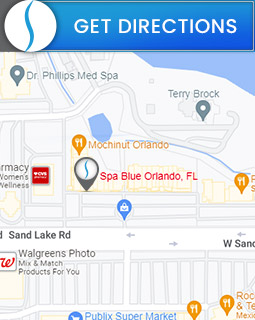FDA Approved Botox Injections
Thinking about Botox? It’s an FDA-approved treatment for smoother, younger-looking skin. We make it easy to understand the process, benefits, and any risks. Get the basics you need to decide if Botox is right for you. For more information, contact us today or schedule an appointment online. We are conveniently located at 7565 W Sand Lake Road, Orlando, FL 32819.


Table of Contents:
Safety Profile and Common Side Effects
Effectiveness and Usage Data
Government Resources for Consumers
Comparison with Other Cosmetic Treatments
Key Recommendations
Is Botox safe for everyone?
How can I verify if my provider is using genuine, FDA-approved Botox?
What should I do if I experience a side effect after a Botox injection?
Botox (onabotulinumtoxinA) is one of the most popular cosmetic treatments worldwide, used for both aesthetic and medical purposes. While it is generally considered safe and effective when administered by qualified professionals, it is important for consumers to be aware of its potential side effects, safety concerns, and how it compares to other cosmetic treatments.
Botox is FDA-approved for a variety of cosmetic and medical uses, including the temporary improvement of facial lines such as crow’s feet and frown lines. The approval process is rigorous, involving extensive clinical trials to ensure both safety and efficacy.
Common side effects are typically mild and temporary, including:
● Bruising, swelling, or redness at the injection site
● Headache
● Mild flu-like symptoms
● Temporary discomfort
More serious but rare side effects can include:
● Droopy eyelids (ptosis) or brow
● Localized muscle weakness
● Difficulty swallowing or breathing if the toxin spreads beyond the injection site
● Severe allergic reactions (rash, itching, or anaphylaxis)
The U.S. Food and Drug Administration (FDA) provides detailed safety information and consumer updates on Botox and other cosmetic injectables. For the latest safety alerts and approved uses, visit the Botox information page.
Effectiveness:
Clinical trials and post-marketing studies have shown that Botox is effective for its approved uses, with most patients experiencing noticeable improvements in dynamic wrinkles (those caused by muscle movement) for three to six months .
Usage Statistics:
According to the Centers for Disease Control and Prevention (CDC), Botox is widely used for cosmetic purposes, with the majority of patients being women aged 25–67. In a recent CDC investigation (2023–2024), 17 cases of harmful reactions were reported, mostly linked to counterfeit products or unlicensed providers. Of these, 76% required hospitalization, highlighting the importance of seeking treatment from licensed professionals using FDA-approved products .
For more on safe cosmetic practices, see the CDC’s Botox Safety Alert.
The U.S. government provides a wealth of resources to help consumers make informed decisions about cosmetic treatments:
● FDA Consumer Guides:
The FDA’s Resources for Consumers on Cosmetics page offers tips on safe cosmetic use, understanding product labels, and reporting adverse reactions.
● Adverse Event Reporting:
If you experience a serious reaction to Botox or any cosmetic product, you can report it through the FDA’s MedWatch program.
● Counterfeit Product Warnings:
The FDA regularly issues warnings about counterfeit or unapproved Botox products. For the latest updates, visit the FDA’s Safety Alerts page.
● Regulatory Information:
For those interested in the regulatory framework, the FDA’s Regulatory Information portal provides access to rules, guidance documents, and compliance resources.
Botox is just one of many cosmetic treatments available. Here’s how it compares to other popular options:
● Dermal Fillers:
Fillers (e.g., Juvederm) add volume to the skin and are best for static wrinkles and facial contouring. They last 6–12 months or longer, while Botox is best for dynamic wrinkles and lasts 3–6 months .
● Laser Treatments:
Lasers improve skin texture, tone, and pigmentation but do not address muscle-related wrinkles. They are non-invasive and can have longer-lasting effects on skin quality .
● Chemical Peels:
Peels remove the top layer of skin to improve texture and mild discoloration. They are best for surface-level concerns, not deep wrinkles .
● Other Neuromodulators:
Alternatives like Dysport, Xeomin, and Daxxify offer similar results, with some differences in onset, duration, and formulation.
For a detailed comparison, see the FDA’s Cosmetic Treatments Guide.
● Always use licensed, trained providers and FDA-approved products.
● Be wary of treatments offered in non-medical settings or at unusually low prices.
● Report any adverse reactions to the FDA.
● Consult official government resources for up-to-date safety and regulatory information.
Botox is generally safe for most healthy adults when administered by a licensed professional using FDA-approved products. However, it is not recommended for pregnant or breastfeeding women, individuals with certain neuromuscular disorders, or those allergic to any ingredients in the product. Always consult your healthcare provider before treatment .
Ask Janet Beres, PA-C, to show you the product packaging and labeling, which should include the manufacturer’s name and FDA approval information. You can also check the FDA’s Drug Approvals and Databases for a list of approved products. Avoid treatments from unlicensed individuals or in non-medical settings.
Stop using the product and seek medical attention if you experience severe symptoms such as difficulty breathing, swallowing, or muscle weakness. Report the reaction to the FDA through the MedWatch program and consult your healthcare provider for further guidance .
Botox is a well-established, FDA-approved treatment for both cosmetic and medical indications. Its safety and effectiveness are supported by extensive clinical data, but risks remain—especially when treatments are performed by unlicensed providers or with counterfeit products. For the safest experience, always consult a licensed professional, use FDA-approved products, and rely on official government resources for information and guidance. If you have more questions about Sculptra, its uses, or FDA approvals, contact us today or book a consultation with us online to learn more about dermal fillers or to speak with a professional about getting them. We serve clients from Orlando FL, Bay Hill FL, Oak Ridge FL, Windermere FL, Gotha FL, Belle Isle FL and Kissimmee FL.

ADDITIONAL SERVICES YOU MAY NEED
ADDITIONAL SERVICES YOU MAY NEED










